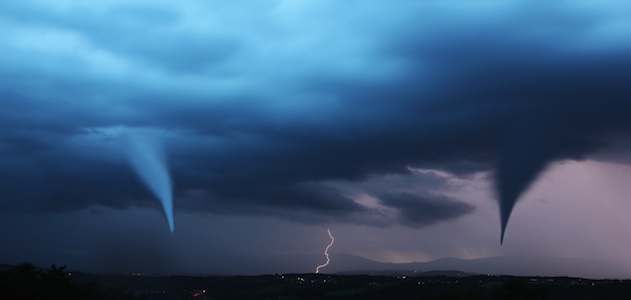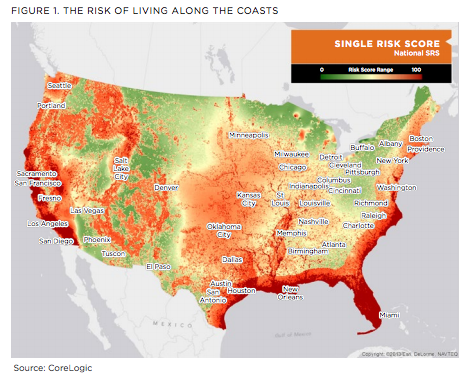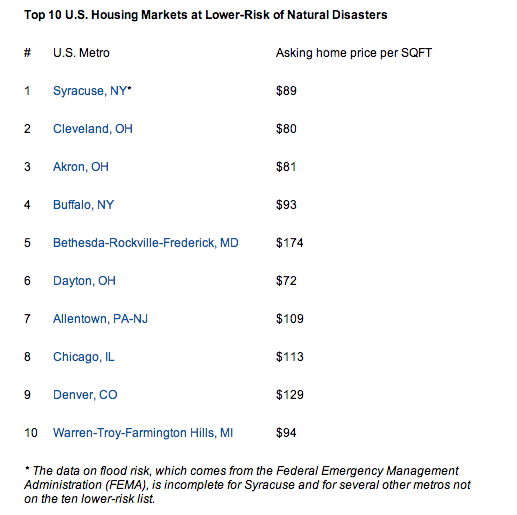A wildfire is currently blazing in Utah, threatening hundreds of homes.
And earlier this week, a 100-foot sinkhole near Orlando, Fla., put a number of vacationers and residents in danger. Not to mention, homes are still being rebuilt after the destruction of Hurricane Sandy, which swept through the Northeast last year.
But the truth is, little is known about the level to which mortgage portfolios are exposed to natural hazard risk, which includes tornados, hurricanes and straight-line winds, hail, wild fires, earthquakes, storm-surge flooding, inland flooding and sink holes.
In 2010, the federal government declared a record number of 81 natural disasters during the year, while in 2011, a new record was set for disaster declarations with twelve separate billion-dollar weather/climate disasters with aggregate damage totaling approximately $52 billion, according to a report on natural disasters from Trulia (TRLA).
“Buying a house is one of the biggest financial decisions a consumer will ever make, but it’s often hard for home shoppers to get information about the potential risks and impact of natural hazards like those we’ve had in recent years,” said Lee Clancy, vice president of consumer products.
When a home is built in a flood zone, flood insurance is required and standard homeowner’s hazard insurance, which covers a variety of additional natural hazards, is also usually required. But it’s difficult to say with certainty what a portfolio’s natural hazard risk exposure may be these days.
In a recent report, CoreLogic (CLGX) economists studied the theory that natural hazard risks actually increase the propensity of mortgage default.
The susceptibility to default caused by natural disasters can be defined in terms of the amount one would need to adjust the LTV to account for this risk. Economists at CoreLogic developed an illustrative model that presents the likelihood of default as a function of traditional borrower with loan and property characteristics typically used in the mortgage industry.
The probability of serious delinquency, foreclosure or REO is dependent on borrower credit worthiness, ability to pay, equity levels and loan purpose. Any borrower who has faced a natural disaster would rebuild or repair, while continuing to make the mortgage payments.
However, the propensity to default when the mortgage is tied to a risk-prone community is almost double that when the home is located in low risk areas.
Fortunately, the recent housing crisis has helped the industry learn more about how to better manage and predict risk.
“One risk that we have historically presumed is covered by requiring insurance is the risk of mortgage default due to natural disaster,” the CoreLogic report said. “Our research demonstrates that borrowers, after controlling for their propensity to default based on traditional mortgage credit characteristics, default at a higher rate the higher the propensity of natural disaster is at the property level.”








